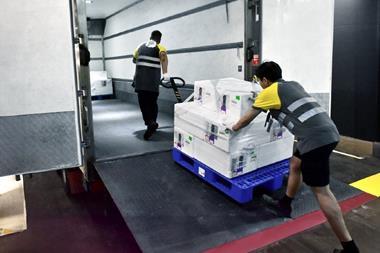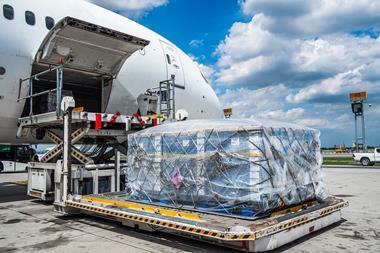Fragmented supply chains and infrastructure constraints are preventing local businesses and citizens in some regions from taking full advantage of the benefits of air cargo.
That was a key message from ICAO secretary general Fang Liu who addressed the IATA Air Cargo Symposium in Berlin.
The head of the United Nations aviation regulatory body told the audience of more than a 1,000 delegates: “Ensuring that that our global network maintains its outstanding safety and efficiency metrics is the best way to assure that modern air services continue to be invaluable to global trade flows and the many industries and sectors which rely on aircraft to get their products from A to B.”
Worldwide, modern air transport is essential for enabling global connectivity, she said. In terms of direct and indirect impacts it supports over 58m jobs and generates more than $2.4trn in economic activity.
Recognising the scale of air transport’s economic contributions, as well as the UN’s long-term objectives, Liu added: “ICAO is working with great determination across all platforms to help assure broader social economic prosperity for all, in line with the new Agenda 2030 and its Sustainable Development Goals, and the value of air cargo trade offers a fantastic opportunity to facilitate economic and social development.”
Liu also pointed to ICAO’s ongoing No Country Left Behind initiative, noting that it seeks to ensure every state has the assistance and capacity-building required to effectively implement ICAO standards and policies.
“In so doing, these same States and Regions can then begin to realise aviation’s global connectivity benefits, and the extensive socio-economic impacts they provide,” she added.
Liu said that quality is an important second advantage to airfreight solutions, since goods transported by air are less susceptible to en-route damage, “however, fragmented supply chains and infrastructure constraints are preventing some regions from taking full advantage of these benefits for local businesses and citizens”.
She also raised the point that liberalisation can greatly mitigate fragmentation impacts, pointing to the successes being seen today in the European and ASEAN air transport markets. She also emphasised that screening procedures can be streamlined without adversely affecting already-strong security levels, and the need for infrastructure modernisation across the board.
“The full benefits of air cargo transport cannot be achieved without intermodal integration and seamless airport facilities,” she commented. “Governments have remained the primary sources for related funding, but privatisation and Public-Private Partnerships can also be useful options to consider — provided that ICAO’s policies on charges for airports and air navigation services are respected in the process.”
Ending off by noting the benefits of e-commerce solutions and the need for states to ratify the Montreal Convention of 1999 to facilitate the introduction of electronic cargo documentation, Liu mentioned that ICAO would be driving further progress on all related topics at two air cargo events it will be convening later this year, one in China this June and another in Africa later this November.










